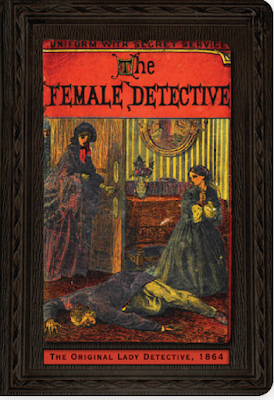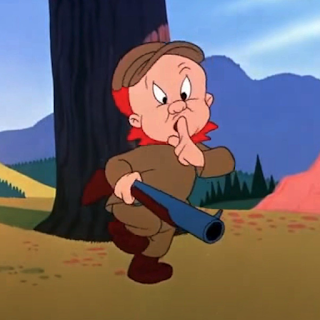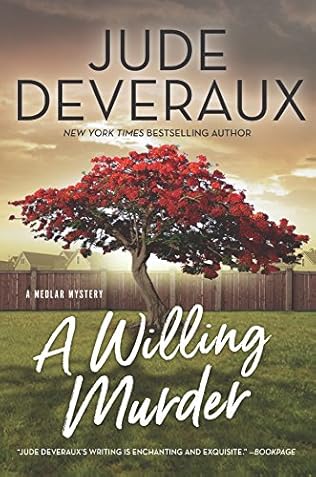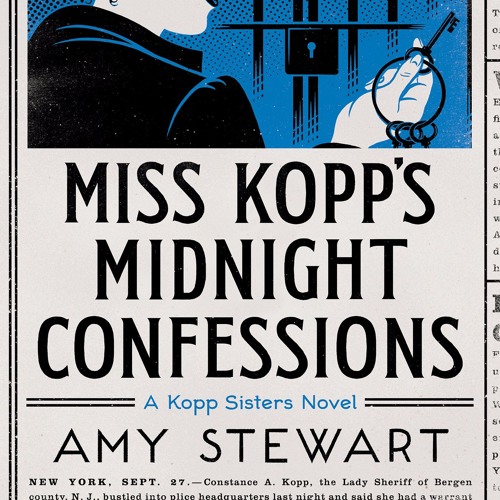The physician, Arthur Conan Doyle, published his first Sherlock Holmes story, “A Study in Scarlet,” in 1887. Recently, I was surprised to find an earlier detective book, The Female Detective, written by James Redding Ware and published under the pseudonym Andrew Forrester. It is a collection of short stories published in 1864, is narrated by Mrs Gladden, the first British woman detective.
Mrs. Gladden’s friends assume she is a dressmaker but she is quite clear that she is a professional detective, and in a charmingly feisty manner defends this by saying “ … if there is a demand for men detectives there must also be one for female detective police spies.”
Her approach to investigating crimes anticipate the methods of Sherlock Holmes. Mrs. Gladden physically examines crimes scenes and looks for clues. Sherlock Holmes is famous for using inductive reasoning, born from medicine – moving from observation to hypothesis – and also deductive reasoning, also born from medicine – from theory to conclusions. This dual reasoning has persisted to this day in all detective novels and was, surprisingly, first used by Mrs. Gladden.
In one story, The Unraveled Mystery, a doctor consults Mrs. Gladden on a gruesome murder case. A carpet bag had been found containing an unidentified body, cut in pieces and missing its head. The doctor goes through evidence, via inductive reasoning, based on skin and hair examination, and concluded the body was that of a foreigner. Mrs Gladden then goes on to conclude that he was also murdered by a foreigner because the murder weapon was a knife, more often used by foreigners, and this interesting piece of deductive reasoning: “We have here in London foreigners who are ready to assassinate.”
The last quote is amusing but shouldn’t take away from this fascinating set of short stories – they are interesting in logic, detective work and for how they set the historic precedent for modern detective novels. These stories and the introduction to them have many elements still present in detectives novels.
Using first person narration, still common in detective novels, Mrs. Gladden argues that detectives are necessary and follows this with evidence when police were rather incompetent and she was not – again, this notion still persists – the detective succeeds where law enforcement fails. Even the somewhat prejudiced view of foreigners ready to assassinate is tempered with her strong sense of that justice to be served for all, including the foreigner who was murdered and she concludes that the police are too prejudiced to care about this murder.
The notion that detectives in novels hold the moral line, right wrongs and do so despite those in power continues to this day. Mrs. Gladden’s many, shall we say, definitive views, are also very much a part of the detective novel history. An interesting example is Mrs. Marple who was both charming but also held many rather definite views and the novels have been edited to cut out language that today is considered racist, although many of us understand that Agatha Christie was a woman of her time, using language of her time and the word 'racist' may be a bit harsh. In the new rendition of Mrs. Marple in Holmes, Marple & Poe by James Patterson and Brian Sitts, Mrs. Marple has lost the inappropriate racial language, upped the empathy but remains very definitive about how repugnant she finds those who break the law and the limits of decency. We now often call this definitive view of the world ‘voicey’ and it is crucial in detective novels where moral lines are often drawn with a voice that refuses to compromise with evil.
The language of the stories in The Female Detective is old school and I found myself having to reread parts till I understood fully what was meant. It was well worth the effort. It’s a lovely look at life back then when the profession of detective was not a woman’s one. In fact, few professions were open to women at all. Mrs. Gladden makes it quite clear that she is not a dabbler in crime, but rather, a professional who investigates them. Quite remarkable for that time in history. Although I’m still making my way through this book, this article was due and I couldn’t think of a more interesting subject than the first female detective story in British fiction.
By this point you may be wondering why I mentioned Sherlock Holmes but not The Murders in the Rue Morgue, the short story by Edgar Allan Poe, first published in Graham's Magazine in 1841 that precedes this set of short stories and is, in fact, the first detective story. The reason is rather embarrassing: I have not read Edgar Allan Poe. However, I have read all the Sherlock Holmes stories and feel comfortable speaking a bit about them. After this particular dive into detective history with the first female detective, I’m waiting for the collected works of Edgar Allan Poe to arrive in the mail to feed my new curiosity about early detective novels.









































